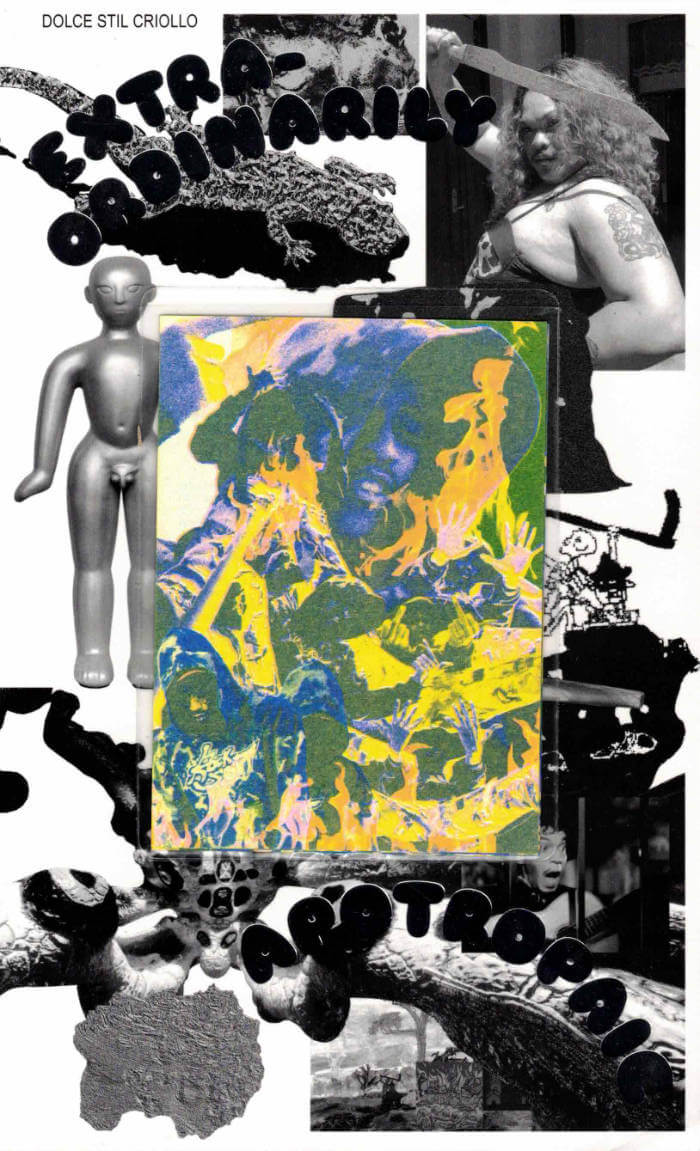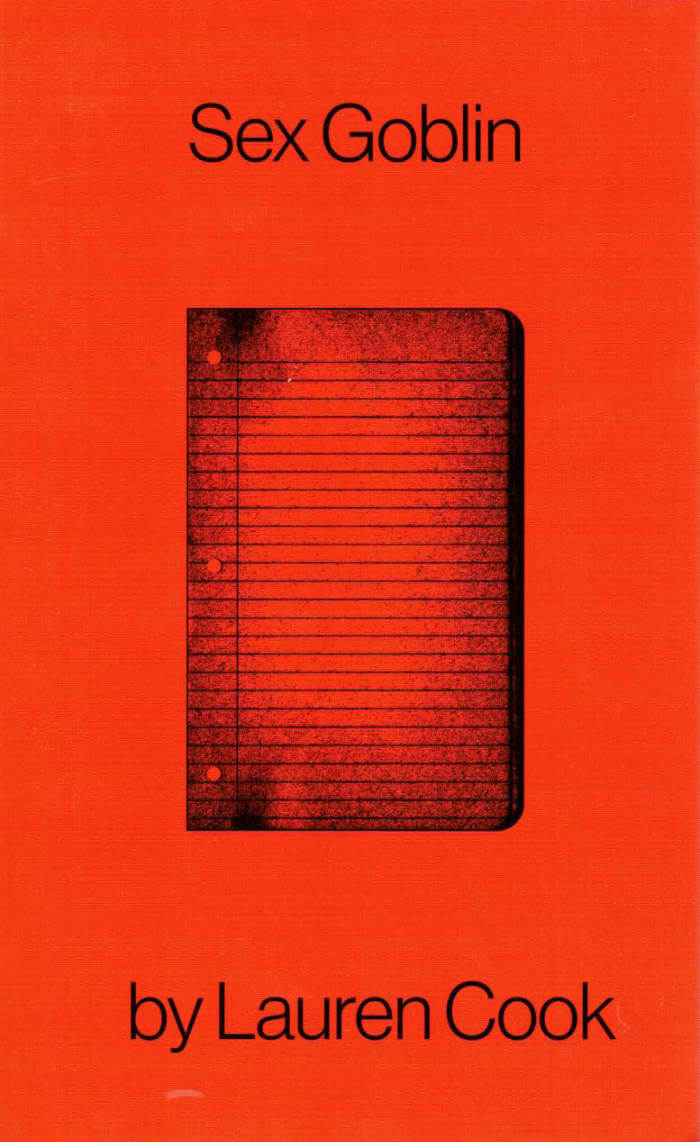Dolce Stil Criollo’s fifth issue, "Extraordinarily Apotropaic," aims to rethink reality in its current ordinary form by discovering and creating charms and rituals for changing it into one where there is less harm. The issue features poems in multiple languages; a map of dreams; a video game-turned-manga; a section that functions as a kineograph; a collaboration with the Huni Kuin people; and more. We also curated a collective project, “Cinema of Hope,” which brings together 11 moving image artists in search of the apotropaic moment, caught on film.
The cover of our fifth issue features one of five “santinho” inserts. Designed like prayer cards, they contain a collaged portrait of a musical artist (Pivaratu, Pivete Nobre, Iya, Swatch, Devil Gremory) on the recto and the rap lyrics they wrote in response to our theme on the verso.
Contributors include Andrés-Monzón Aguirre, Aykan Safoğlu, Azul Caballero Adams, Belinda Zhawi, Daniel Machado, Daniel Moura, Devil Gremory, Enorê, Esvin Alarcón Lam, Gabriel Massan, Hick Duarte, Itamar Alves, Iya, Jennifer Pérez, Jesse Cohen, Johan Mijail, Juan Pablo Villegas, Kasra Jallilipour, Kent Chan, Keratuma (Mileidy Domicó), Laura Huertas Millán, Lucía Melií, Lucía Reissig & Bernardo Zabalaga, Maria Thereza Alves, Masha Godovannaya, Mayada Ibrahim, Najlaa Eltom, NIna Djekić, Ophelia S. Chan, Pivaratu, Pivete Nobre, Ricardo Pinheiro (Ganso), Roberto Tejada, Sofía Córdova, Sofía Gallisá Muriente, Swatch, Thales Pessoa, and Thiago Martins de Melo.
Languages: Spanish,
Portuguese, English, Japanese and Arabic






